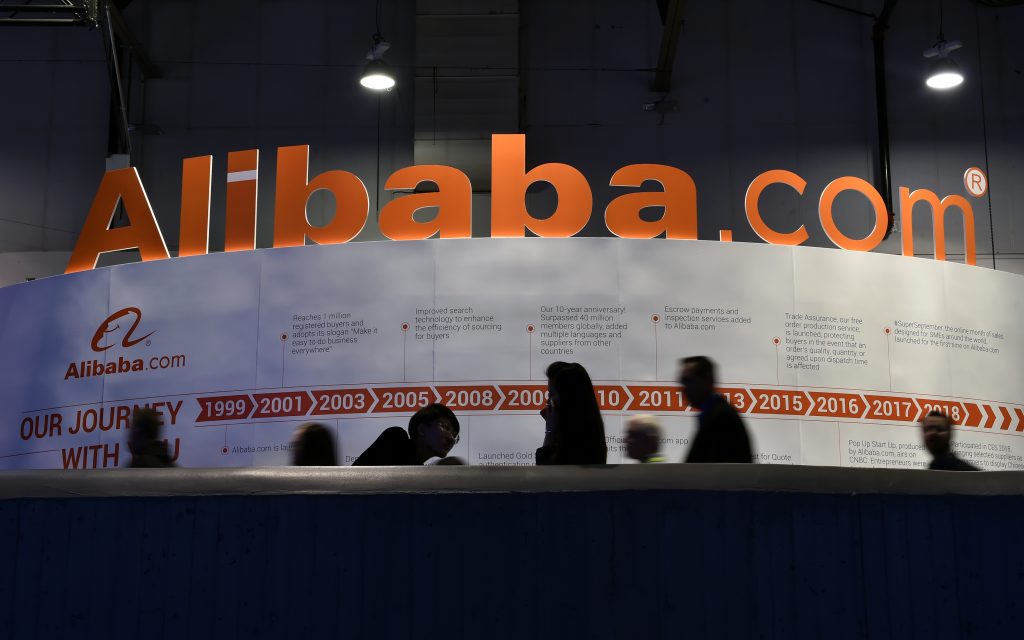Chinese Tech Stocks Rally on Heels of Recent Alibaba Breakup
Alibaba is breaking up into six separate companies. Will it be a new blueprint for large Chinese tech companies?

Taking a page out of Deng Xiaoping’s playbook, Alibaba (BABA) announced on March 28 that the company will split into six different entities.
Deng Xiaoping—China’s de facto from 1978 until his death in 1997—once said, “Keep a cool head and maintain a low profile.” Leaders at BABA appear to agree, suggesting that the breakup of the Chinese conglomerate will allow for greater flexibility and agility, and better equip the new units to compete in their respective business markets.
Announced via a letter to shareholders, Daniel Zhang, CEO of Alibaba, said of the forthcoming transformation, “If you do not embrace change, you will become rigid, and if you do not change yourself, you will be defeated by the times.”
After the reorganization is complete, the six business units are expected to include Cloud Intelligence (cloud and A.I.), Global Digital Commerce (overseas e-commerce), Consumer Services (mapping and delivery), Cainiao Smart Logistics (logistics and supply chain), Digital Media/Entertainment and Innovation.
To allow for greater flexibility and decision making, each of the new business units will have its own unique CEO and board of directors. The 2022 fiscal year revenues of each unit are highlighted in the graphic below.
Each of the six new business units will also be free to raise capital from outside investors, with the implied goal of separate initial public offerings (IPOs) at some point in the future, and could eventually be completely independent of the company.
BREAKING: #Alibaba says it will consider giving up business groups after IPOs.https://t.co/bAMPf1tGRp
— Nikkei Asia (@NikkeiAsia) March 30, 2023
The official statement focused on making the overall business more nimble, but many outside observers believe the forthcoming changes were prompted by the new regulatory environment in China.
As suggested by Deng Xiaoping many years ago, a low profile may allow for greater autonomy in the current Chinese business environment. And for this reason, the reorganization of Alibaba may end up serving as a blueprint for other large tech companies in China.
Sentiment in Chinese stocks has been negative for the last several years, but did rebound during Q4 in 2022 when the Chinese government finally started loosening strict COVID-19 measures.
So far in 2023, Baidu (BIDU) is up roughly 27%, while BABA is up roughly 11%.
In January, a widely-circulated interview conducted by a central banker in China appeared to indicate that the government might soon be pivoting away from its heavy-handed regulatory approach.
Moreover, the U.S. and China resolved a long-standing audit dispute, which could have resulted in the mass delisting of Chinese companies from American exchanges.
Above all, Jack Ma made a public appearance on the Chinese mainland the day before Alibaba announced it was breaking into smaller pieces.
#Alibaba founder #JackMa has been spotted in #China after spending months abroad in a potential sign that Beijing is warming to technology giants again after a roughly 18-month crackdown on the sector. #Ma also visited #Tron office in Beijing, to talk with #Sun about how to… pic.twitter.com/spqRs2cs2l
— TONiSwiss TRN (@TONiSwissTRON) April 1, 2023
Some experts believe that recent public appearances by well-known businesspeople in China—many of whom had previously fallen out of grace—are intended to send a message that growth and innovation are back in vogue in China.
Commenting on recent developments in the Chinese business sector, Eswar Prasad—a professor at Cornell University who formerly worked at the International Monetary Fund—told the Wall Street Journal, “Beijing seems eager to show that prominent entrepreneurs like Jack Ma, once hailed as visionaries and then vilified by the government, are now welcome back in China.”
Only time will tell if the regulatory environment has truly loosened up, or whether the strict oversight of the Chinese tech sector is here to stay. But it will also be interesting to see if other large tech companies in China follow Alibaba’s lead, and elect to break up into smaller entities.
In addition to Alibaba and Baidu, some of the other large, publicly-traded tech companies in China include JD.com (JD), Meituan (MPNGY), NetEase (NTES), PDD Holdings (PDD) and Tencent Holdings (TCEHY).
To follow all of the latest developments in the financial markets, tune into tastylive, weekdays from 7 a.m. to 4 p.m. CDT.
Sage Anderson is a pseudonym. He’s an experienced trader of equity derivatives and has managed volatility-based portfolios as a former prop trading firm employee. He’s not an employee of Luckbox, tastylive or any affiliated companies. Readers can direct questions about this blog or other trading-related subjects, to support@luckboxmagazine.com.





















